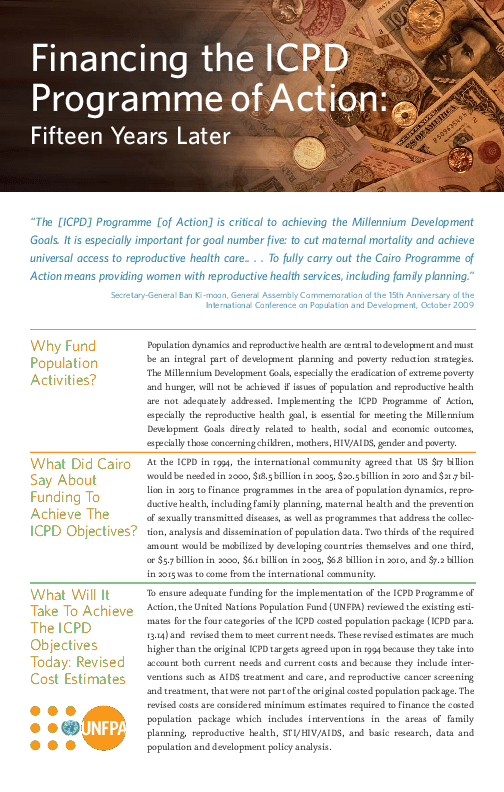Three decades have passed since the landmark International Conference on Population and Development, where world leaders agreed to take concrete action to put sexual and reproductive health and rights at the heart of development. This year, parliamentarians from across the globe will gather at a key conference to mark the anniversary.
At the eighth International Parliamentarians’ Conference on the Implementation of the ICPD Programme of Action, parliamentarians will meet in Oslo, Norway, to discuss how they can advance the sexual and reproductive health and rights of women and girls and all individuals everywhere. Ministers including the Norwegian Ministers for Development and Equality will join the group, along with United Nations experts, academic and civil-society leaders and other stakeholders.
Parliamentarians are vital advocates for the cause. They have played a critical role in passing laws and mobilizing budgets, both domestically and overseas, that guarantee access to sexual and reproductive health care for those who need it most. With their support over the past 30 years, global maternal mortality has declined by a third, the number of women using modern contraception has doubled and adolescent births have fallen by a third.
But there is much to be done. For instance, despite the decline in the maternal mortality rate, a woman still dies every two minutes from preventable complications related to pregnancy and childbirth. Deaths occur at much higher rates in poorer countries. “Justice and equality will only be possible when our health-care systems provide everyone with access to the respectful, compassionate and quality care they deserve,” UNFPA Executive Director Dr. Natalia Kanem has said.
Progress relies on finding innovative financing solutions. Donor countries must meet their development-assistance commitments. And developing countries must prioritize sexual and reproductive health and rights in their domestic policies.
This can make a profound difference in millions of lives. For instance, between 2022 and 2030, spending an additional $79 billion on ending the unmet need for family planning and on ending preventable maternal deaths would avert 400 million unplanned pregnancies, save 1 million women’s lives and generate $660 billion in economic benefits.
In addition to financing, the conference will focus on how to manage increasing anxieties about population dynamics in a world of 8 billion people, as well as on how to realize the benefits of technology while minimizing potential harm to women, girls and vulnerable groups.
The conference is being hosted by the Norwegian All-Party Parliamentary Group on Sexual and Reproductive Rights and the Global Parliamentary Alliance on Health, Rights and Development, an initiative of the European Parliamentary Forum for Sexual and Reproductive Rights, which is a co-organizer of the conference with UNFPA.
Since 2002, UNFPA and parliamentary networks have organized this global conference to discuss resource mobilization and sexual and reproductive rights issues. The first conference was held in 2002 in Ottawa, Canada, with subsequent gatherings in France in 2004, in Thailand in 2006, in Ethiopia in 2009, in Turkey in 2012, in Sweden in 2014 and again in Ottawa in 2018.




